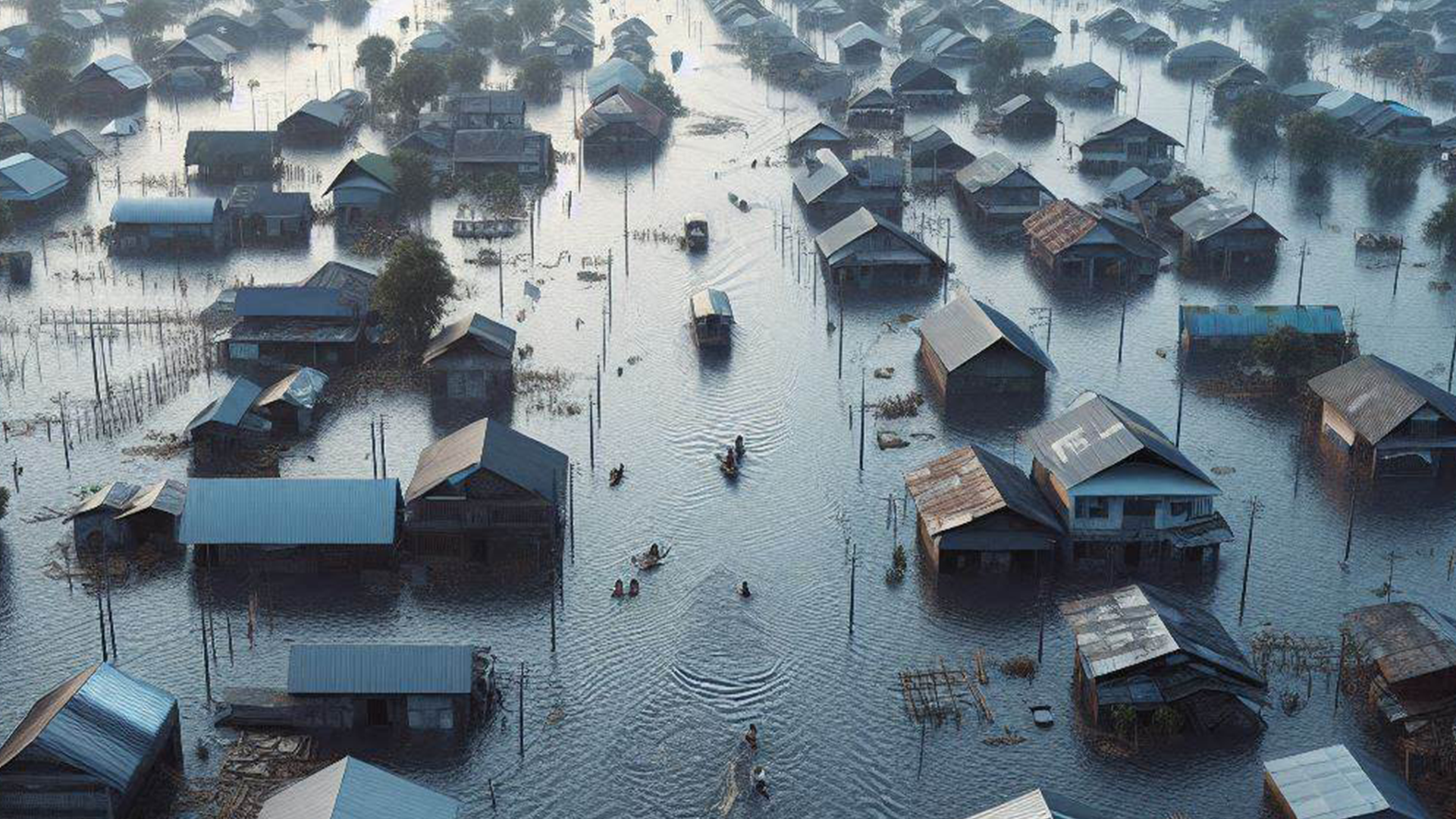The tale of the fallen trees
When the trees that once shielded a village from the river’s wrath were sold for profit, the soil lost its anchor—and with it, homes, memories, and a sense of safety. Now, as floodwaters reclaim the land each stormy season, the survivors must face the stark truth: can they restore what was lost, or is their world slipping away one fallen tree at a time?

She woke up suddenly to the sound of rushing waters. It was that time of year again, the time to move. For five long years, this had been the routine, a cycle of displacement and survival. Her heart tightened as she threw off the thin blanket, her body already bracing for what was to come. She opened the creaky door that led to the compound, and one by one, the neighbors did the same.
The familiar scene greeted them—an oppressive, dark sky, the clouds thick and heavy, casting a gloom over the already flooded walkways. The rain had come again, unforgiving as always, and the village—what was left of it—was barely holding on. Makeshift homes, once a source of shelter and warmth, had been washed away overnight, leaving nothing but soaked ground and debris. The sight was as heartbreaking as it was expected.
She gazed at the rising waters, the sound of the river Ewaola’s roar carried in the wind. This wasn’t just the start of another storm; it was the beginning of another long, torturous night for the villagers. It was time to make a decision. Stay and risk losing everything—or leave, again, to find safety elsewhere. Her chest ached as memories filled her.
The good old days, as she often called them, had been defined by peace and beauty. Back then, the village had been different—whole. She could still remember walking through the vast forest to the west of the village, where the air was crisp, and the green canopy seemed endless. The villagers would spend hours hunting, gathering, or simply breathing in the scent of damp earth and wildflowers, the kind of air that made you feel alive.
The breeze would dance through the branches, whistling softly, carrying with it the chatter of birds and the scampering of squirrels darting between the trees. It had been perfect. The forest, like a guardian, had stood strong between the village and the river, its thick roots holding the soil together, keeping the mighty Ewaola at bay even in the heaviest rains. Back then, they were safe.
But those days were gone, snatched away in a single, irreversible decision. Five years ago, everything had changed. Investors had arrived, men in expensive suits and with even more expensive words. They’d come with promises and papers, their eyes gleaming with interest in the community’s forestland. Lumbering, they called it.
The villagers had listened, hesitant at first, but when the negotiations stretched on and the sum of money they offered grew higher, the temptation had become too great. They’d been convinced—this was a future they could use, an opportunity that couldn’t be ignored.
She clenched her fists, feeling the weight of that mistake. One day. That was all it took for the forest to be reduced to stumps, for the natural shield to vanish. And when the rains came that season, there was no longer anything standing between the river and the village. The banks had eroded, and the Ewaola spilled over with fury, swallowing their homes, their peace, their history. In an instant, their lives had changed.
Now, every rainy season marked the same sorrow. They would gather, as they did now, heads hung low in a collective silence. The village was unrecognizable, and the questions haunted them all: Was the money worth it? Could they have done something to stop this? The answers never came, only the relentless rains and the floodwaters that followed.
She stood there, gazing out into the ruined landscape. There was no going back. But, as the villagers gathered and shared solemn glances, one thing was clear—it was time to make a choice. Again.
